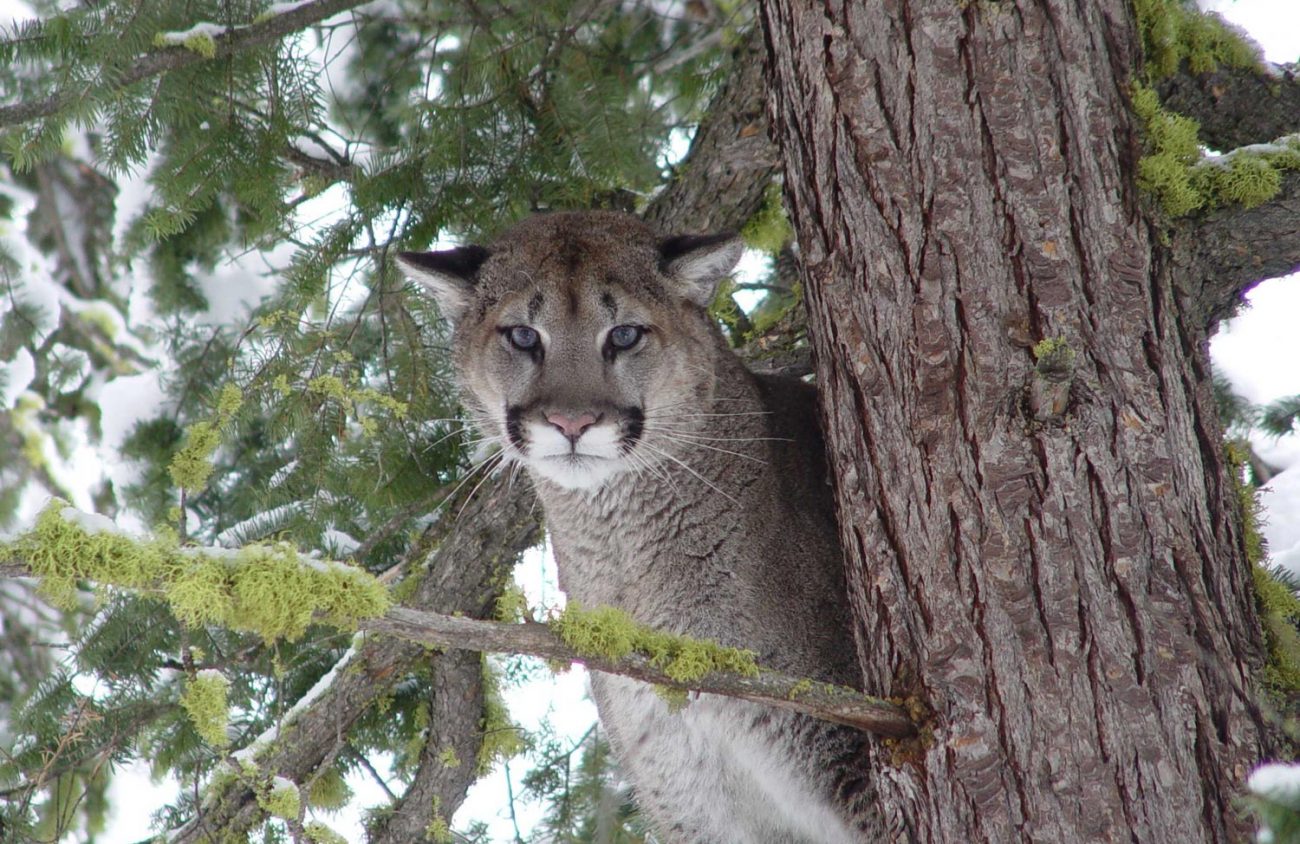In 1994, Oregonians voted to ban the use of dogs to hunt cougars and bears. In legislative sessions following the passage of that ballot measure, however, lawmakers have introduced bills aiming to dismantle and weaken Measure 18.
Since 2008, Senior Oregon Director and Rural Outreach Director of the Humane Society of the United States Scott Beckstead says he’s been fighting these efforts during every legislative session.
Four bills have been introduced for the 2017 session that began Feb. 1. Three of them would allow counties to opt out of the ban on the use of hunting dogs and one, Senate Bill 458, would allow for the issue of controlled tags for hunting with dogs.
Beckstead says the best science available shows that hunting cougars has destabilized the population. The Humane Society of the United States and the Humane Society International published Cecil 2: Trophy Hunting America’s Lion, a report citing multiple sources that deem “trophy hunting of mountain lions … internationally controversial, unsustainable, inhumane, ineffective at reducing human-lion conflicts, and harmful to populations and the environment.”
Sen. Chuck Thomsen, a Republican from Hood River, is the sponsor of SB 458, which he says would address Oregon Department of Fish and Wildlife’s controlled removal of cougars.
Problem cougars, defined by ODFW as cougars that pose a threat to livestock, humans or pets, are “humanely euthanized” by either law enforcement or the agency. Thomsen says his bill would issue special permits to hunt cougars for damage control.
“So I just thought instead of paying someone to do it, put out a special tag and a bunch of people can apply for it and [ODFW] will make some money while they’re doing it and it won’t cost them anyway,” he says.
Oregon’s cougar hunting season is open year-round, unless ODFW’s Cougar Management quotas have been reached. ODFW estimates around 6,200 wild cougars live within Oregon state lines and since 2015, the killing quota has been set at 970 cougars per year.
Hunters must obtain a $15.50 cougar tag, and when a cougar is killed, it must be brought to the agency within 10 days for inspection. Hunting is not allowed within city limits or on private property. In all, the agency says, 543 cougars were killed in Oregon in 2016.
Brian Wolfer, a cougar biologist with the ODFW, says the agency follows guidelines set by the Cougar Management Plan to determine when its necessary to kill a problem cougar. He says the new Cougar Management Plan is slated for an informational briefing on Aug. 4 and a rule-making session on Oct. 14.
He declined to comment on research by multiple sources contributing to the Humane Society Report citing that hunting destabilizes cougar populations.
Beckstead says, “The Oregon Cougar Management Plan was rolled out in 2006, and it was instantly criticized by top cougar biologist around the country as being deeply flawed especially in terms of its population estimation models.”
Trophy hunters pose additional danger to Oregon’s cougar populations, Beckstead says, because they’re typically seeking the biggest specimens, and the largest animals tend to be the ones keeping the rest of the population in check.
Leaving large dominant cougars in place, he adds, helps the species regulate its own population, whereas hunting encourages cougars to roam outside of their territory.
Thomsen says it’s difficult to hunt cougars without dogs and estimates that hunters would be willing to pay between $1,500 and $2,000 to kill cougars labeled by ODFW as problematic. “That’s the main idea, is to tell ODFW that, look, if you’re going to shoot a cougar because you have to, then at least put it up for a special permit.”
The Oregon State Police Fish and Wildlife Division enforces Measure 18. OSP spends between 400 and 600 hours a year on cougar enforcement, OSP Capt. Jeff Samuels says, and officers generally detect about 6 to 15 cougars illegally killed a year.
ODFW spokwsman Rick Hargrave also says he hasn’t heard of many illegal hunting cases. “People would see that, and I imagine there would be a lot of people reporting that,” he says.
On Jan. 21, the Deschutes County Sheriff’s Department issued a press release reporting that a cougar hiding under a deck was shot and killed by an officer after the animal had attacked a neighborhood dog. The animals cannot be tranquilized and relocated because they are very territorial, according to Hargrave.
An AP story that picked up the initial Deschutes County Sheriff’s Department press release included the information that the cougar was killed “less than a quarter mile from a children’s day care.”
Scott Beckstead says the addition of the day care detail is “political fear mongering.”
“It’s as though that somehow means that those children were in danger,” he says. “There has never been a single recorded attack by a wild, free roaming cougar in Oregon.”
Beckstead says the timing and the language of the article is suspect. “Before the 2015 session, a flurry of stories came in from all over the state.”
While the debate over hunting cougars continues, Thomsen says he’s unsure if his bill will receive a hearing.
“I’m a Republican, and we’re almost in the super minority, and a lot of times the Republican bills don’t even get hearings,” Thomsen says. “It’s just the way it works down there.”
Ultimately, Beckstead says, the bills are antidemocratic and the issue should be put back on the ballot if need be. In addition to the passage of Measure 18, Beckstead says voters reaffirmed their position in 1996 when a ballot measure to repeal Measure 18 was defeated.
“Wildlife advocates are more than prepared to have that conversation again, and we are confident the voters will reaffirm their support for protecting cougars from cruel and unethical hunting practices,” he says.
